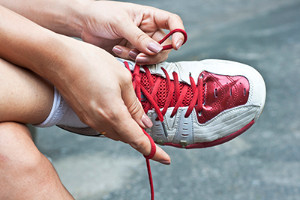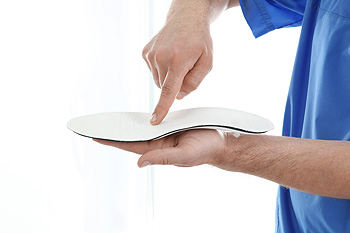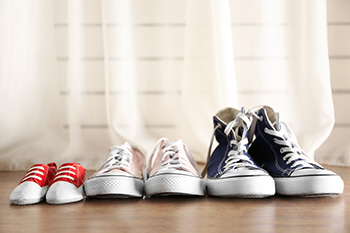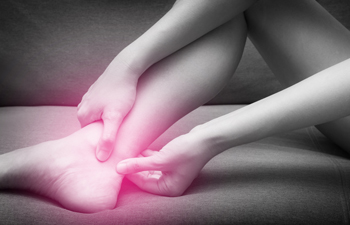Connect With Us
Blog
Items filtered by date: September 2023
Choosing the Perfect Running Shoes

Selecting the right pair of running shoes is an important decision for both seasoned runners and beginners. The perfect running shoes provide not only comfort but also reduce the risk of injuries. To find the best fit, it is helpful to know your foot type. They can be flat, or have a normal or high arch. Knowing this helps determine the right level of arch support you need. It is beneficial to consider what terrain you'll be running on. Different types of running shoes are designed for road running, trail running, or a mix of both. It is also helpful to assess your gait, whether you overpronate, which is rolling inward, or supinate, which is rolling outward. Always try on running shoes in the late afternoon or evening when your feet tend to be slightly larger. Ensure there is a thumb's width of space between your longest toe and the shoe's end. Walk or jog in the store to gauge comfort and fit. Lastly, don't compromise on quality or comfort for style, and it is important to prioritize function above all else. By taking these factors into account, you can confidently choose the best running shoes that suit your unique needs, ensuring a comfortable and enjoyable running experience. If you would like additional information about how to choose running shoes that are best for you, it is suggested that you confer with a podiatrist.
You should always make sure your running shoes fit properly in order to avoid injury. For more information, contact Pedram Aslmand, DPM from Advanced Foot and Ankle Center. Our podiatrist can provide the care you need to keep you pain-free and on your feet.
Choosing the Right Running Shoe for Your Foot Type
Improper shoe sizing can cause a myriad of problems for your feet. Shoes that don’t fit you properly can lead to muscular imbalances in your body, which can result in foot, knee, and hip injuries.
Tips for Finding the Right Running Shoe
- Make sure you have a thumb’s width of wiggle room between the end of your longest toe and the front of the shoe.
- There should be little to no slipping at the heel
- Don’t assume your size in one shoe brand will be your size in another
- Do not lace up your shoes too tightly
- Walk around in the store with your new shoes before you buy them
If you have any questions please feel free to contact our our offices located in Long Beach, CA . We offer the newest diagnostic and treatment technologies for all your foot and ankle needs.
Pain Relief From Custom Orthotics

Orthotics are custom-made shoe inserts designed to support and align your feet properly. They can be a game-changer when it comes to reducing foot pain and discomfort. First, custom orthotics provide added cushioning and support to your feet, which can help distribute your body weight evenly. This can alleviate pressure on specific areas, such as the arches or heels, and reduce pain associated with conditions like plantar fasciitis or flat feet. Second, custom orthotics can correct abnormal foot mechanics, such as overpronation, which is rolling your feet inward, or supination, which is rolling your feet outward. Orthotics also can help to align your feet and ankles properly and reduce strain on the muscles and tendons. In addition, orthotics can improve your posture and reduce the stress on your knees, hips, and lower back. This process can indirectly alleviate foot pain caused by poor alignment. If you're experiencing discomfort or pain in your feet, it is suggested that you make an appointment with a podiatrist to determine the type of custom orthotics you may need.
If you are having discomfort in your feet and would like to try orthotics, contact Pedram Aslmand, DPM from Advanced Foot and Ankle Center. Our podiatrist can provide the care you need to keep you pain-free and on your feet.
What Are Orthotics?
Orthotics are inserts you can place into your shoes to help with a variety of foot problems such as flat feet or foot pain. Orthotics provide relief and comfort for minor foot and heel pain but can’t correct serious biomechanical problems in your feet.
Over-the-Counter Inserts
Orthotics come in a wide variety of over-the-counter inserts that are used to treat foot pain, heel pain, and minor problems. For example, arch supports can be inserted into your shoes to help correct overarched or flat feet, while gel insoles are often used because they provide comfort and relief from foot and heel pain by alleviating pressure.
Prescription Orthotics
If over-the-counter inserts don’t work for you or if you have a more severe foot concern, it is possible to have your podiatrist prescribe custom orthotics. These high-quality inserts are designed to treat problems such as abnormal motion, plantar fasciitis, and severe forms of heel pain. They can even be used to help patients suffering from diabetes by treating foot ulcers and painful calluses and are usually molded to your feet individually, which allows them to provide full support and comfort.
If you are experiencing minor to severe foot or heel pain, it’s recommended to speak with your podiatrist about the possibilities of using orthotics. A podiatrist can determine which type of orthotic is right for you and allow you to take the first steps towards being pain-free.
If you have any questions please contact our offices located in Long Beach, CA . We offer the newest diagnostic and treatment technologies for all your foot and ankle needs.
The Impact of Shoes on Feet and Overall Body Comfort

Footwear plays a crucial role in the overall health of your feet and musculoskeletal system. Shoes with narrow toe boxes, toe spring, and elevated heels can have profound effects on various parts of your body. Some shoes fit the ankle in a slightly plantar-flexed position, destabilizing it, and increasing the risk of ankle sprains. They also shorten posterior calf muscles and tendons, potentially leading to reduced muscle elasticity and performance. These kinds of shoes can negatively impact the knees, the pelvis, in addition to the spine. Optimal foot alignment within naturally shaped footwear, characterized by a wide toe box and a level sole, can help address these concerns. This type of footwear encourages even weight distribution, natural joint alignment, and balanced spinal curvature, promoting overall musculoskeletal health. If you would like professional help with choosing footwear that will best maintain the health of your feet and benefit the rest of your body, it is suggested that you make an appointment with a podiatrist to discuss this subject further.
It is important to find shoes that fit you properly in order to avoid a variety of different foot problems. For more information about treatment, contact Pedram Aslmand, DPM from Advanced Foot and Ankle Center. Our podiatrist will treat your foot and ankle needs.
Proper Shoe Fitting
Shoes have many different functions. They cushion our body weight, protect our feet, and allow us to safely play sports. You should always make sure that the shoes you wear fit you properly in order to avoid injuries and deformities such as: bunions, corns, calluses, hammertoes, plantar fasciitis, stress fractures, and more. It is important to note that although a certain pair of shoes might be a great fit for someone else, that doesn’t mean they will be a great fit for you. This is why you should always try on shoes before buying them to make sure they are worth the investment. Typically, shoes need to be replaced ever six months to one year of regular use.
Tips for Proper Shoe Fitting
- Select a shoe that is shaped like your foot
- Don’t buy shoes that fit too tight, expecting them to stretch to fit
- Make sure there is enough space (3/8” to ½”) for your longest toe at the end of each shoe when you are standing up
- Walk in the shoes to make sure they fit and feel right
- Don’t select shoes by the size marked inside the shoe, but by how the shoe fits your foot
The shoes you buy should always feel as good as they look. Shoes that fit properly will last longer, feel better, and improve your way of life each day.
If you have any questions, please feel free to contact our offices located in Long Beach, CA . We offer the newest diagnostic and treatment technologies for all your foot care needs.
Causes and Symptoms of Achilles Tendonitis

The Achilles tendon, the body's largest tendon, plays a pivotal role in walking, running, and jumping. When it becomes inflamed or irritated, the condition known as Achilles tendonitis arises. This ailment involves inflammation in two forms, noninsertional and insertional. Noninsertional Achilles tendonitis affects the middle area of the tendon and is more common among athletes and younger individuals. Insertional Achilles tendonitis targets the lower heel area and affects patients of all activity levels. Common factors that contribute to Achilles tendonitis include overuse due to sudden exercise intensity changes and inadequate footwear. Tight calf muscles and diminished ankle flexibility may also strain the tendon. Aging renders tendons less flexible, making middle-aged athletes more prone to Achilles tendonitis. Poor running form and other conditions, like bone spurs or inefficient foot anatomy, can make it worse. Symptoms of Achilles tendonitis include gradual heel pain that worsens over time. Stiffness, tenderness upon waking, and mild swelling around the heel are other symptoms. For help dealing with Achilles tendonitis, it is suggested that you make an appointment with a podiatrist for a diagnosis and the appropriate treatment option.
Achilles tendon injuries need immediate attention to avoid future complications. If you have any concerns, contact Pedram Aslmand, DPM of Advanced Foot and Ankle Center. Our podiatrist can provide the care you need to keep you pain-free and on your feet.
What Is the Achilles Tendon?
The Achilles tendon is a tendon that connects the lower leg muscles and calf to the heel of the foot. It is the strongest tendon in the human body and is essential for making movement possible. Because this tendon is such an integral part of the body, any injuries to it can create immense difficulties and should immediately be presented to a doctor.
What Are the Symptoms of an Achilles Tendon Injury?
There are various types of injuries that can affect the Achilles tendon. The two most common injuries are Achilles tendinitis and ruptures of the tendon.
Achilles Tendinitis Symptoms
- Inflammation
- Dull to severe pain
- Increased blood flow to the tendon
- Thickening of the tendon
Rupture Symptoms
- Extreme pain and swelling in the foot
- Total immobility
Treatment and Prevention
Achilles tendon injuries are diagnosed by a thorough physical evaluation, which can include an MRI. Treatment involves rest, physical therapy, and in some cases, surgery. However, various preventative measures can be taken to avoid these injuries, such as:
- Thorough stretching of the tendon before and after exercise
- Strengthening exercises like calf raises, squats, leg curls, leg extensions, leg raises, lunges, and leg presses
If you have any questions please feel free to contact our offices located in Long Beach, CA . We offer the newest diagnostic tools and technology to treat your foot and ankle needs.

